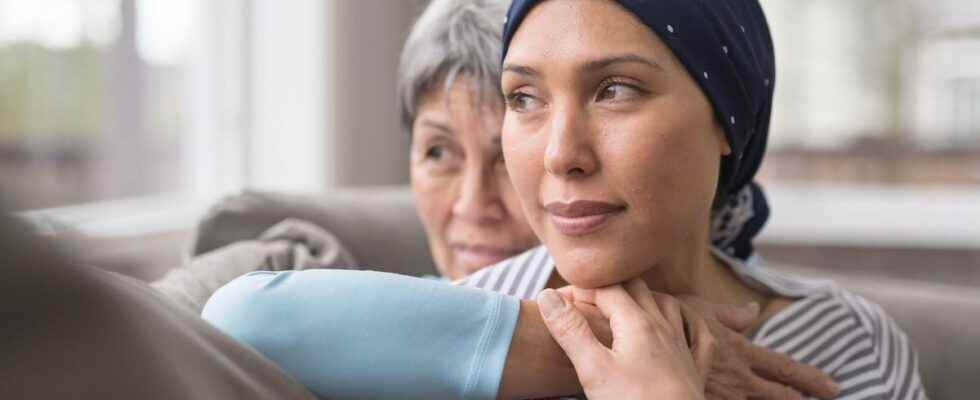Published ,
Reading 2 mins.
A new study published in the Journal of Clinical Oncology reveals that after receiving cancer treatment, women are 34% more likely than men to develop side effects.
Could gender have an impact on post-cancer recovery and the effects felt? Yes, according to recent work by American researchers.
Amazing disparities
The side effects of anti-cancer treatments are more frequent in women than in men. At least that’s what a new American study published in the Journal of Clinical Oncology has observed.
To reach these conclusions, 23,300 patients – 38% of whom were women – were scrutinized closely. The researchers reviewed the results of phase II and III clinical trials conducted by the cancer research center “SWOG” between 1980 and 2019 (excluding results related to sex-specific tumors; such as cancer of the breast or prostate).
“Women have been known to suffer more from chemotherapy toxicity than men, but almost no research has investigated whether this pattern holds for newer treatments like immunotherapy or targeted therapies.“said Joseph M. Unger, lead author of the study.”We found similar big differences, especially for immune treatments“.
Side effects more common in women, especially with immunotherapy
Result: women recorded almost 275,000 adverse effects and presented a 34% higher risk of side effects than men. Women who received immunotherapy saw their risks increase further (49%).
“We found particularly large increases in severe toxicity in women compared to men who received immunotherapies“, says Joseph M. Unger, lead author of the study.
It remains to fully understand these results since it is a question of “the first study to systematically assess, in a large sample, differences in treatment toxicity between men and women for traditional chemotherapeutic approaches as well as new therapies, such as targeted therapies and immunotherapies“.
The intestinal microbiota in question?
This post-cancer period would therefore prove to be more difficult for women. In question: the treatments used and in particular those deployed in the event of colon cancer, which include an additional treatment.
Faced with these results, the experts put forward several hypotheses:
“How women and men physically respond to medications may differ“, says Joseph M. Unger. Women, for example, would be less able to eliminate fluorouracil, an anticancer treatment that slows or stops cell growth.
Another possibility: the intestinal microbiota could play a decisive role in the face of variations in side effects. How the female or male body would metabolize drugs would differ.
Consult an oncologist online
Consider gender for side effect management
“Increasingly, cancer treatments will be individualized for patients“, concluded Pr. Unger. “These results indicate that the patient’s gender may be an important parameter before initiating individualized treatment, including for new treatments such as immunotherapy.“.
